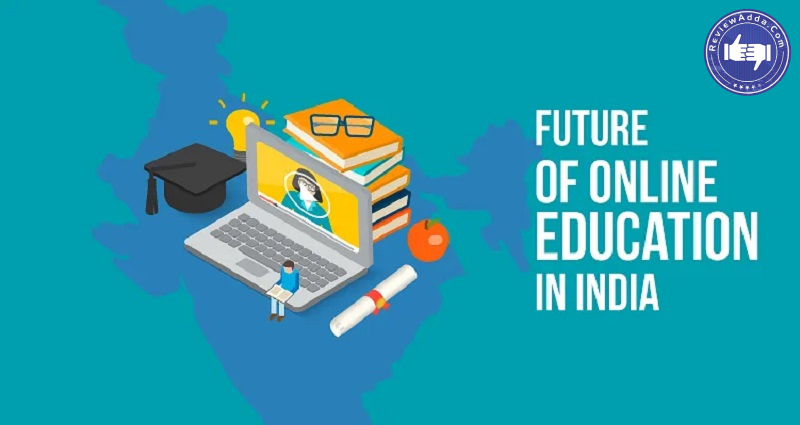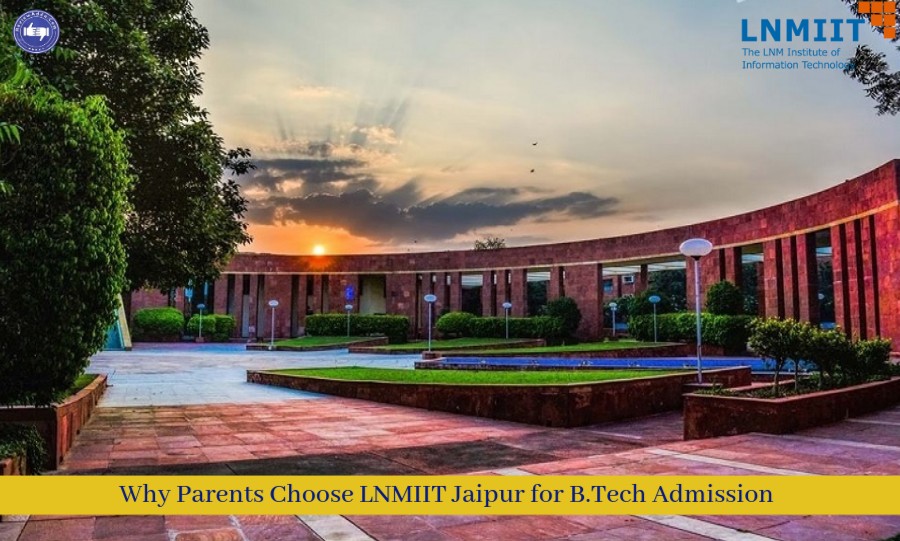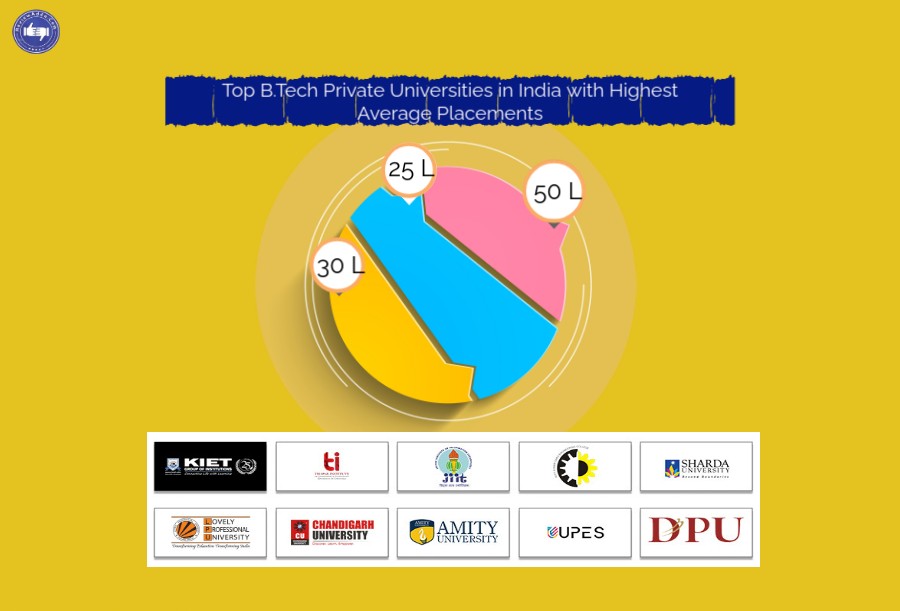Topic We Cover: Online Education in India
1. Interesting facts about Online education in India
2. Online Education Trends
- In India Online learners will grow by leaps & bounds
- Online courses in unexpected subjects
- Online "supplementary" education will flourish
- Target will be on career skills, not just degrees
- Quality & delivery will enhance
3. Advantages of online education
- Learn from anywhere, at any time
- Save Money and Time
- Learn at your own pace
- Recognition of online degrees
- Review lectures instantly
- Less intimidating
- More time to think before sharing
- Focus on ideas
- Group communication
- Flexible learning schedule
- Cost
- Diversity
- Availability of Instructor
4. Disadvantages of online education
- Chances of distraction are very high
- Online courses fraudulent
- Cannot do courses that need Labs/Workshops
- Hidden costs
- Arduous technology
- Quality of faculty negotiate
- Doubtful credibility of degrees
- Lose out on networking
5. What Are the Popular Online Courses in India?
6. Types of Distance Learning Programmes Offered in India
7. Distance Learning Courses Prohibited in India
8. Undergraduate Courses Offered in Distance Mode
9. Postgraduate Courses Offered in Distance Mode
10. Top Institute/University for distance education in India
11. Top 10 Colleges for Distance/Correspondence MBA
In India Online education has come a long way with the advancement and evolution of technology. India is one of the influential nations which is as per the terms of technology is developing at an exponential rate. With the population of over 1.3 billion, the availability of smartphones and a high-speed internet, India has the huge number of technologically driven persons. In India the acceleration of the internet has changed the way of life. People like to do everything online, do business online, they shop online, make friends online, and learn online etc. While e-Commerce being the Most Influential Online Industry, Online education and learning stand right next to it. With the ever-growing information available on the internet and an innumerable number of online courses many people prefer to learn online in India.

By observing or you can say by seeing the potential and extremely large popularity of Digital Technology in India, Our Honorable PM has envisioned change completely our nation and building opportunities for all citizens by rein in digital technologies Through the initiative of Digital India. The initiative comprises of several projects in numerous areas relating to education, health, employment, labour, etc. As a part of Digital India project, many colleges and univ. offer online correspondence courses. Now let’s have a look to some of the Interesting Facts about Online Education in India.
Interesting facts about Online education in India
- In India the Market of Online Education was worth $ 247 million in 2016, which is by 2021 expected to increase about $ 1.96 billion i.e. a compound annual growth rate of 52%.
- In 2016 for various online learning courses the number of users enrolled is estimated to be 1.6 Million, Which is by the end of 2021expected to increase about 9.6 Million.
- It is estimated that in the cost of classroom education there is a 175% growth, this gives online education more chosen because it is cost effective.
- In India nearly 48% population between 15–40 age group with high goals but for online education lower income is a good target market. And, the influence of online channel is immense in the younger demographic.
These factors without any doubt show the involvement and future potential of online education in India. Now let’s discuss some of the Online Education Trends of Online Education over traditional education.
Online Education Trends
In the last few years online education in India has been on an upward swing and the trend is expected to continue in 2017 as well - maybe at a much increased pace. There is an ever-increasing population of education-hungry students & Professionals in India that is going online.
Why? Because in India there are 50 crore students falling in the age bracket of 5 - 24 years and the country is just not equipped to provide a appropriate education to such an enormous number only through the traditional mode (i.e. classroom teaching.)
Add to that by Nasscom and Akamai Technologies the prediction by 'The Future of Internet in India' report that the no. of internet users in India will over double by 2020 (in 2015 rising from 35 crores to 73 crores).
It is no surprise then that across the nation Online Education is increasingly acquiring popularity! So here's our take on what will trend in the new year, 2017 in online education in India:
1. In India Online learners will grow by leaps & bounds
From India there were 13 lakh Online Learners as compared to the overall 180 lakh online Learners on Coursera as per last year's statistics shared by Coursera (world's largest open online education i.e. MOOC provider). In the registrations of Indian users on the platform there had been a 70% hike over the last one year.
These figures are exhibitive of the expected progress in the no. of Online learners in India. By year 2030, the Indian govt. aims to addition the enrollment (GER) in universities to 30% from 23.% in 2014-15. And by just setting up more traditional classrooms & universities it is practically not possible.
For India's Education System the answer is online! No wonder then that as per an IBEF report by 2017, India's online education market size is expected to reach $40 billion.
2. Online courses in unexpected subjects
According to the Indians, Big Data & Business Analytics, Computers, & MBA (Business) remain the most favourite subjects being learnt online.
But gradually for the Indian audience more & more surprising subjects are expected to be taught online. For instance, online certificates and degrees in culinary management and operations offered by Le Cordon Bleu. Digital Marketing Strategies course offered by the University of Cambridge.
Similarly, the International Forensic Sciences (IFS) Education Dept. of India offers online short term certificate courses Cyber Law, Cyber Forensics, & various other specializations.
Online Postgraduate Dental Training that's targeted at general dentists, specialists & lab technicians offered by the Dawson Academy of India.
3. Online "supplementary" education will flourish
K12 education system of India's has over 26 crore students enrolled in it and is not exactly known for the quality of education it make known.
A major chunk of students have been confidence on after-school coaching/ tuition or "supplementary education". Out of these, for availing extra help minimum 2 crore students from classes 6 - 12 are expected to turn towards online forums.
In fact, this number is going to raise further as technology spread throughout into the tier-2 and tier-3 cities. This is a major reason for the favourable outcome of BYJU's - The Learning App that has seen over 50 lakh installations. Tuition centres & coaching classes will soon be replaced by e-tutorials!
4. Target will be on career skills, not just degrees
While traditional degrees like a graduation or postgraduations are proof of your education, they don't really target on specific skills that prove useful for a specific job profile. This void is being bridged these days with the help of a huge variety of Online Courses through which you can learn or gain knowledge on any skill you want!
So if you think you lack the know-how required for a job you're applying to, just check for an online course which on accomplishment, offers you more credentials like"nanodegree" or "digital badge" or a "certified" tag. An example is the several professional accreditation (Developer certification, Adwords certification etc.) that Google provides to online learners who shows proficiency in different domains.
In India employers have also slowly initiated accepting some of these Online Certifications as proof that the employee has the right set of skills for their job.
5. Quality & delivery will enhance - with the increase of Edtech companies in India
In 2016, through over 26 deals, education technology i.e. edtech companies receive large investments (to the tune of $323 million). Most of ed-tech firms that received funding are concentrating on online education:
Byju's Classes - India's dominant test preparation provider that will make you "fall in love with learning" through their online content it offers to students in the form of interactive & interesting videos. Last year, it lifted $75 million from Sequoia Capital & Sofina and $50 million in funding from Facebook's Chan Zuckerberg initiative!
Simplilearn: The provider of Online Certificate Course, Simplilearn has lifted $28 million till date and in 2017 it is expected to elevate another $30 million.
The quality of content & delivery of online courses will definitely enhance with more and more players in this domain & increasing competition.
Advantages of online education
Learn from anywhere, at any time
Since Online Education or online studies only needs a laptop or a smartphone with an internet connection of good speed, students can learn anywhere at any time. This adaptability helps working professionals to follow new courses without giving up their jobs. They can learn at weekends or in their free time. All the course materials are readily available at student’s fingertip.
Save Money and Time
Online education is much more affordable in comparison to doing a regular on-campus degree. It is convenient and helpful to students who cannot afford a regular college degree to achieve their dream without spending a fortune on College Education. Since students can study at their own time, it helps to save time as well.
Learn at your own pace
I think everyone will be agree with that everyone learns at a different pace. In a classroom where everyone taught together, many students find it complicated to follow the lessons. This is a serious Disadvantage of Traditional Education. But this issue has been solved by online education system. All the course materials are provided beforehand in online education, students learn it by taking their own time. Students can also clarify their doubts by live chats or forums as well.
Recognition of online degrees
By many companies and Employers in India online degrees are accepted as long as it is approved and accredited by Distance Education Council (DEC) of India. For getting online education many of them are encouraging their employees as well.
Review lectures instantly
During a lecture it’s easy for minds to wander. Jonathan Schooler psychologist at University of California found that students lose concentration about 5 times in a 45-minute class session. In many online programs, however, students can check words from professors immediately, either by reading the transcript that go with the lecture or by rewinding the audio or video.
Less intimidating
In classroom environments many students aren’t comfortable speaking in public. In an online environment, it can be much convenient to share thoughts with others. According to the National Institute of Mental Health, with 74 % of people suffering from speech anxiety, Online Education likely to support better class participation.
More time to think before sharing
Often in a forum or discussion Board Online Schooling still has a discussion element to it. On-campus students have to choose a position or formulate a thought in class fast, and sometimes speak before they’ve fully examined everything. In an online environment, students can spend as much time as they want thinking about and sharpening their own ideas. This can attend to greater con?dence and more elegant discussions.
Focus on ideas
With an estimated 93 % of communication being non-verbal, online students don’t have to make anxious about body language interfering with their message. While body language can be persuasive sometimes, academics are more about ideas, and Online Education eliminates physical judgments that can cloud realistic discussion.
Group communication
Today many degree programs assimilate some sort of group project or teamwork. On-campus working with others or locally means coordinating particular days and times so everyone can join. Distance Learning Programs, however, promote virtual communication and allow students to work with team members via chat rooms, email, and other easy-to-use methods.
Flexible learning schedule
On-campus students may have to bear hardship in-person lectures that last hours. While not all online programs are built the same, many use Power Point presentations and other media that students can taken in pieces. In other words, a student can learn the ?rst half of a lesson one day, and the second half the next day. This can be especially helpful for those who don’t enjoy sitting in one place for too long.
Cost
Although the fees of an online course is cost-effective than a traditional course, by avoiding many fees typical of campus-based education, including parking, lab fees, hostels, commuting costs, etc students can save money. Imagine living in Dhule but going to college in Mumbai.
Diversity
Traditional students are often limited to teachers and courses close to home. But in the online student can take a French course from a teacher in France and a travel-writing course from a writer who’s actually out travelling, without having to leave home.
Availability of Instructor
At traditional colleges and universities, after class talking to a professor can be challenging. Yes, instructors have working hours, but it’s generally only an hour or two each week, with so many students waiting for attention. While teachers who teach online may also have set hours for student communication, web-based technologies make conversing with no. of students at once much easier. At night or during intermissions to address questions professors can also hop online, leave comments and more.
Disadvantages of online education
Chances of distraction are very high
In Online Education Students can easily drop track of their studies since there are no directly facing lectures and classmates to remind you about assignments. Until and unless you keep yourself instigated it takes a long time to accomplish your course or abandon your entire course.
Online courses fraudulent
There are numerous websites that offer online courses without the accreditation of any educational authority or in the name of fake authorities. To get a job such courses will not be helpful. So it is very essential before you spend money on it, to opt an accredited online/distance program.
Cannot do courses that need Labs/Workshops
You cannot do an Engineering Course or any other course that needs labs or hands-on workshops online. Also in courses like MBA you miss the chances of overseas experience, professional networking, etc. Which is considered an important part of the course.
Hidden costs
Although a Distance Education Program cost of is usually cheaper than a regular program, there can be hidden costs involved. For example, you might have to acquire some primary expenses like getting a reliable Internet connection and installing a computer, if your distance learning course is offered online. You may require to buy additional resources such as a web camera, a printer, and so forth. Some expenses might be recurring, like electricity and maintenance costs.
Arduous technology
In Distance Learning Mode of education overdependence on technology can be a major flaw, especially when the education takes place in an online environment. Any malfunctioning hardware or software can bring an ongoing class to a standstill and bother the process of learning. Similarly, if a student is not tech and computer savvy, his learning experience can be unsatisfactory.
Quality of faculty negotiate
Often thought-out to be the lesser counterpart of regular education, Distance Education is often disturbed by lack of enough good quality faculty members. In other cases, even if the instructor is satisfactory, he or she may not be comfortable with teaching in an online environment. Sometimes the tech. might not do full justice to the design and delivery of the course. In all these scenarios a student loses out. Distance education providers should think about it that it is not the technology, but effective and good teachers that teach students.
Doubtful credibility of degrees
Even though online and distance education is initiating to get recognition, there are still a lot of non-accredited and fraudulent degrees being offered. With the addition in the number of Online/Distance Programs, the number of scam operators are also growing. This influence the credibility of recognized distance learning degrees among prospective employers.
Lose out on networking
The benefit of going through a regular programme go beyond just interaction with good course content and teachers. In India, MBA Graduates from leading business schools (B-schools) would vouch for the fact that the favourable circumstances to network with renowned faculty, established alumni, and industry heads go a long way in paving a secure career. A distance learning program loses out on this very essential aspect.
What Are the Popular Online Courses in India?
The most popular courses learnt online by Indians remains Big Data & Business analytics, Online MBA, Digital Marketing and Programming. Here are some of the tags where you can know about the above-mentioned courses online.
 Get Updated Review ( Voice Based Alumni Feeback)
Get Updated Review ( Voice Based Alumni Feeback)
-
 Check Review (Alumni Feedback) - Lovely Professional University - [LPU] – Click Here
Check Review (Alumni Feedback) - Lovely Professional University - [LPU] – Click Here -
 Check Review (Alumni Feedback) - Amity University – Click Here
Check Review (Alumni Feedback) - Amity University – Click Here -
 Check Review (Alumni Feedback) - Graphic Era University – Click Here
Check Review (Alumni Feedback) - Graphic Era University – Click Here -
 Check Review (Alumni Feedback) - Jagran Lake City – Click Here
Check Review (Alumni Feedback) - Jagran Lake City – Click Here -
 Check Review (Alumni Feedback) - Apeejay Stya University – Click Here
Check Review (Alumni Feedback) - Apeejay Stya University – Click Here
- Online MBA by ICFAI
- Online MBA BY Symbiosis
- Online MBA By Indira Gandhi Open University
- Online MBA by Amity University
- Online MBA by Sikkim Manipal University
Big Data and Business Analytics:
- Big Data By Coursera
- Big Data Courses by EdX
- Big Data training tutorials by Lynda
- Big Data Courses by Udemy
Digital Marketing:
- Digital Marketing Course By NIIT
- Digital Marketing and SEO by Digital Vidya
- Digital Marketing by Manipal Global Education
- Digital Marketing by AIMA
Programming Courses:
- Computer programming by EdX
- Free programming courses by Alison
- Programming courses by Coursera
- Online programming courses by Lynda
- Web development and programming by Udemy
Types of Distance Learning Programmes Offered in India
All the Distance Learning Programmes in the country are offered in accordance with the objectives of the concerned institution, its national and regional aspirations and norms of the concerned statutory bodies. Listed below are the types of programmes offered in ODL mode:
- Diploma
- Certificate
- Graduate Degree
- Post Graduate Degree
- Post Graduate Diploma
Distance Learning Courses Prohibited in India
In 2017, the UGC had notified that programmes in the following fields will be banned from being offered in distance/correspondence mode by any HEI:
- Engineering
- Medicine
- Dental
- Pharmacy
Read more about streams prohibited from offering distance learning courses in India.
Undergraduate Courses Offered in Distance Mode
Given below are the Undergraduate Programmes offered in the distance mode by several universities like IGNOU, Chandigarh University, Lingaya's Vidyapeeth, Faridabad, Graphic Era University, Bharti Vidhyapeeth, Pune, etc.:
|
Name of Course |
Duration |
|
Bachelor of Arts (B.A.) |
3 Years |
|
B.A. (Vocational Studies) Tourism Management |
3 Years |
|
Bachelor of Education (B.Ed.) |
2 Years |
|
Bachelor of Social Work (B.S.W.) |
3 Years |
|
Bachelor of Commerce (B.Com) |
3 Years |
|
Bachelor of Business Administration (B.B.A.) |
3 Years |
|
Bachelor of Computer Applications (B.C.A.) |
3 Years |
|
Bachelor of Science (B.Sc.) |
3 Years |
|
Bachelor of Library & Information Sciences (B.Lib.) |
1 Year |
Postgraduate Courses Offered in Distance Mode
Listed below are the Postgraduate Distance Learning Courses. Apart from them, individuals can also opt for various postgraduate diploma programmes offered in diverse fields by top institutes.
|
Name of Course |
Duration |
|
Master of Arts (M.A.) |
2 Years |
|
Master of Tourism & Travel Management (M.TTM.) |
2 Years |
|
Master of Library & Information Science (M.Lib.) |
1 Year |
|
Master of Anthropology |
2 Years |
|
Master of Social Work (M.S.W.) |
2 Years |
|
Master of Education (M.Ed.) |
2 Years |
|
Master of Commerce (M.Com) |
2 Years |
|
Master of Business Administration (MBA) |
2 Years |
|
Master of Computer Applications (MCA) |
2 Years |
|
Master of Science (M.Sc.) |
2 Years |
Top Institute/University for distance education in India
|
University |
City |
Type of University |
|
IGNOU |
New Delhi |
National Open University |
|
Yashwantrao C. Maharashtra Open University |
Nashik |
State Open University |
|
IMT Distance and Open Learning Inst. |
Ghaziabad |
Autonomous Institute |
|
Sikkim Manipal University (SMU DDE) |
Gangtok |
Dual Mode University |
|
Symbiosis Centre for Distance Learning |
Pune |
Autonomous Institute |
|
MP Bhoj (Open) University |
Bhopal |
State Open University |
|
Dr. BR Ambedkar Open Univ. (BRAOU) |
Hyderabad |
State Open University |
|
Netaji Subhas Open University |
Kolkata |
State Open University |
|
University of Mumbai (IDOL) |
Mumbai |
Dual Mode University |
|
Maharshi Dayanand University (DDE) |
Rohtak |
Dual Mode University |
|
M.A. National Urdu Univ. (DDE) |
Hyderabad |
Dual Mode University |
|
Univ. of Delhi (SOL) |
New Delhi |
Dual Mode University |
|
Annamalai University (DDE) |
Annamalainagar |
Dual Mode University |
|
Dr. B. A. Open Univ. |
Ahmedabad |
State Open University |
|
Karnataka State Open University |
Mysore |
State Open University |
|
Acharya Nagarjuna University (CDE) |
Guntur |
Dual Mode University |
|
The ICFAI University Sikkim |
Gangtok |
Dual Mode University |
|
Osmania University (PGRRCDE - Prof. G. R. Reddy Centre for Distance Edu.) |
Hyderabad |
Dual Mode University |
|
Alagappa University (DDE) |
Karaikudi |
Dual Mode University |
|
Shivaji University (CDE) |
Kolhapur |
Dual Mode University |
|
The ICFAI Univ., Tripura |
West Tripura |
Dual Mode University |
|
SNDT - Women's Univ. (CDE) |
Mumbai |
Dual Mode University |
|
Himachal Pradesh University (ICDEOL) |
Shimla |
Dual Mode University |
|
Tamil Nadu Open University |
Chennai |
State Open University |
|
University of Madras (IDE) |
Chennai |
Dual Mode University |
|
Andhra University (SDE) |
Vishakhapatnam |
Dual Mode University |
|
Madurai Kamaraj University (DDE) |
Madurai |
Dual Mode University |
|
Vardhman Mahaveer Open University, Kota |
Kota |
State Open University |
|
UP R. Tandon Open Univ. |
Allahabad |
State Open University |
|
Uttarakhand Open University |
Haldwani |
State Open University |
|
Nalanda Open University |
Patna |
State Open University |
|
Kurukshetra University (DDE) |
Kurukshetra |
Dual Mode University |
|
University of Calicut (SDE) |
Kozhikode |
Dual Mode University |
|
Patna University (DDE) |
Patna |
Dual Mode University |
|
Kakatiya University (SDLCE) |
Warangal |
Dual Mode University |
Top 10 Colleges for Distance/Correspondence MBA
Some of the leading management institutes offering Correspondence MBA or Distance MBA are given below.
|
MBA Colleges |
Course (Duration) |
Total Fees* |
|
N. M. Inst. of Mgmt. Studies (NMIMS), Global Access School for Continuing Edu. (NGA-SCE) |
PGD-Business Management PGD-Marketing Management (2 yrs) PGD-Financial Management (2 yrs) PGD-Human Resource Management (2 yrs) PGD-International Trade Management (2 yrs) PGD-Banking And Finance (2 yrs) PGD-Supply Chain Management (2 yrs) |
Rs 62,000 |
|
Institute of Management Technology, Centre for Distance Learning |
PGDP (2 yrs) |
Rs 1 lakh |
|
PGD–Business Administration (1 yr) PGD–Human Resource Management (1 yr) PGD–Marketing Management (1 yr) PGD–Financial Management (1 yr) PGD–Material and SCM (1 yr) |
Rs 60,000 |
|
|
SCDL |
PGD-Business Admin. (2 yrs), Specialisations – Fin.; Marketing; Operations; HR; CRM, Management Accounting (Dual specialisation option available) PGD-International Business (2 yrs) PGD Banking and Finance (2 yrs) |
Rs 30,000-36,000 |
|
PGD Human Resource Management (1 yr) PGD Insurance Management (1 yr) PGD Retail Management (1 yr) PGD Customer Relationship Management (1 yr) PGD Supply Chain Management (1 yr) PGD Export & Import Mgmt. (1 yr) |
Rs 18,000-22,000 |
|
|
PGD-Information Technology (2 yrs) |
Rs 30,000-37,000 |
|
|
IGNOU |
MBA (maximum duration is 8 yrs) |
Rs 31,500 |
|
PGDM (1 yr) PGD-HRM (1 yr) PGD-Financial Management (1 yr) PGD-Operations Management (1 yr) PGD-Marketing Management (1 yr) PGD-Financial Markets Practice(1 yr) |
Rs 1,500 per course |
|
|
Prin LN Welingkar Institute of Management |
PGDM (2 yrs), Specialisation in Marketing Management; Finance Management; Human Resource Management; Retail Management Operations Management; Supply Chain Management; Business Administration; E-Business; International Business; Banking, Investment and Insurance (Dual specialisation option available) |
Rs 61,000 without Personal Contact Program (PCP) fees and Rs 64,600 along with PCP fees |
|
Amity University, (Distance Learning) |
MBA |
Rs 1.27 lakh |
|
Master of Financial Management (2 yrs) |
Rs 1.13 lakh |
|
|
PGD-Business Management (1 yr) PGD-Material Management (1 yr) PGD-Marketing Management (1 yr) PGD-Financial Management (1 yr) PGD-Export Management (1 yr) PGD-Production Operation Management (1 yr) PGD-Insurance Management (1 yr) PGD-NGO Management (1 yr) PGD-Retail Management (1 yr) PGD-Logistics & Supply Chain Management (1 yr) PGD-Human Resource Management (1 yr) |
Rs 64,700 |
|
|
Dip. in Advertising & Brand Mgmt. ( 6 months) |
Rs 18,600 |
|
|
PGD-Financial Analysis (2 yrs) (IU Tripura) |
Rs 55,000 |
|
|
Diploma in Investment Management (1 yr) (IU Tripura) Diploma in Derivatives & Risk Management (1 yr) (IU Tripura) Diploma in Global Financial Markets (1 yr) (IU Tripura) Diploma in Talent Management (1 yr) (IU Tripura) Diploma in Innovation Management (1 yr) (IU Tripura) Diploma in Retail Management (1 yr) Diploma in International Business (1 yr) (IU Tripura) |
Rs 18,500 |
|
|
Annamalai University |
MBA (2 yrs) MBA (E-Business) MBA (International Business) MBA (Human Resource Management) MBA (Marketing Management) |
Rs 57,050 |
|
MIT School of Distance Education |
PGD Business Administration (2 Years) |
Rs 55,000 |
|
PGD Energy Management (1 Year) |
Rs 35,000 |
|
|
Suresh Gyan Vihar University |
MBA in Marketing Management MBA in Hospital Management MBA in Operation and Production Management MBA in International Marketing |
Rs 98, 500 |
|
LPU Distance Education |
MBA |
Rs 54,000 |
Putting it as a whole India has great opportunities and potential in the Educational Technology Sector with increasing young population, increasing internet penetration and acknowledgement of Online Learning as an economical-channel.










.jpg)
